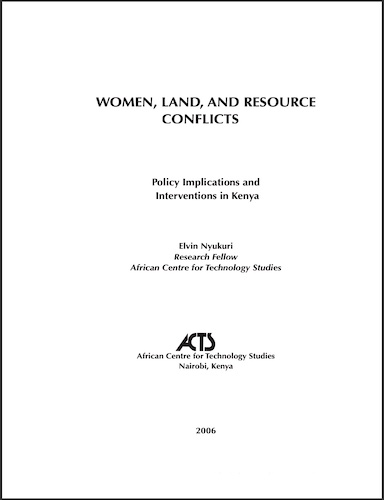Women, Land and Resource Conflicts - Policy Implications and Interventions in Kenya
 |
Inequitable access and control over resources including credit, land ,water, and time is near universal between women and men. Women play a critical role in managing natural resources and have extensive knowledge and experience of the water, land and energy supplies that sustain households and communities. Yet their lack of land tenure or inheritance rights and current trends such as water privatization, undermine their ability to own, manage, use, and conserve these resources and to provide for themselves and their families. Women’s limited title to land property and inheritance often means less access to agricultural extension services and credit and translates into reduced access to water and food. Women are still concentrated in the informal sector, where there are no job or safety protections and those entering the formal wage economy tend to be employed in the lowest paying jobs with the greatest environmental and safety hazards. Women still earn less than men for the same work, outnumber men among those who are illiterate. Women’s responsibility for domestic chores tends to mean that time is an extremely limited resource for women-time to participate in community organizations, time to study and time to earn an income. Thus women’s ability to protect their own security and ensure the security of family members differs enormously.
Download

